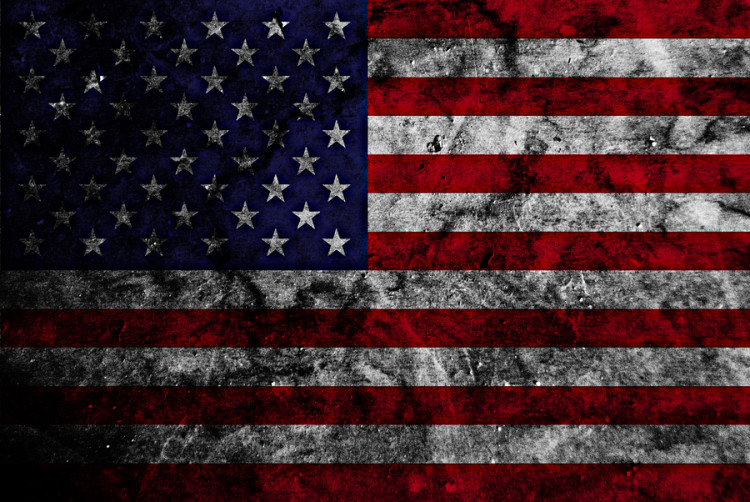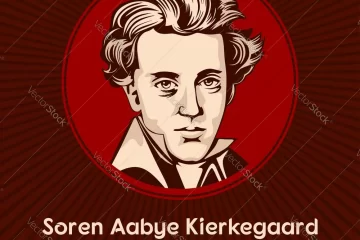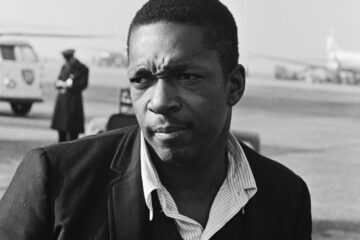Devotional 1/6/16: John Adams Gives a Qualified Blessing

The war on the religious convictions of the founding fathers seems to rage on and on. It kind of sickens me. It sickens me because atheists want to claim all of the founding fathers (including Washington) for themselves and so do fundamentalists.
Granted, anyone can point to quotes which will support each side, often from the same person (especially Mr. Jefferson)! There are many quotes from Jefferson or Madison or Washington or Adams or (God help us) Franklin that skew the religious establishment and others that support it. Many raging anti-theists use these quotes (regardless of the context) to bolster the idea that there needs to be a thousand-foot iron wall between not just church and state, but between church and existence. They tell us that unless one is there, there will be a theocracy. And fundamentalists want us to believe that all of the founding fathers were saintly choirboys.
I think that we can all agree on one thing. That is that many of the men who signed the Declaration of Independence and/or the Constitution knew about the possibility of abuses by the religious establishment and wanted to guard against them.
However, most were men of at least some faith. Most of them had a lot. They attended the White House chapel (even Jefferson). They had no problem with one of them being a Protestant minister, Robert Treat Paine. He signed the Declaration of Independance and went onto serve in various positions in Massachusetts (he probably would not be so welcome there now). They seemed to all have at least a knowledge of spiritual things. And there were definitely men who were not afraid to acknowledge God/Providence/An Infinite Power in their speeches. I am not aware of anyone complaining when Thomas Jefferson wrote in his inaugural address, “And may that Infinite Power which rules the destinies of the universe lead our councils to what is best, and give them a favorable issue for your peace and prosperity.” I mean, if even Thomas Jefferson can acknowledge that then it is inaccurate to call him an atheist! The same can be said of John Adams, who was also an Unitarian.
That is why at the beginning of our second year here at Men of Value, I have included the second president’s inaugural speech. He obviously had problems with organized religion. However, he was a man who valued faith, family, and freedom and that is reflected in this address of his. May it be a guiding light for us in our new year. I have highlighted some of it in order to reinforce we are here to celebrate our heritage of faith, family, and freedom. I have included most of it so that no one can say I am quoting out of context.
In compliance with an usage coeval with the existence of our Federal Constitution, and sanctioned by the example of my predecessors in the career upon which I am about to enter, I appear, my fellow-citizens, in your presence and in that of Heaven to bind myself by the solemnities of religious obligation to the faithful performance of the duties allotted to me in the station to which I have been called. In unfolding to my countrymen the principles by which I shall be governed in the fulfillment of those duties my first resort will be to that Constitution which I shall swear to the best of my ability to preserve, protect, and defend. That revered instrument enumerates the powers and prescribes the duties of the Executive Magistrate, and in its first words declares the purposes to which these and the whole action of the Government instituted by it should be invariably and sacredly devoted–to form a more perfect union, establish justice, insure domestic tranquillity, provide for the common defense, promote the general welfare, and secure the blessings of liberty to the people of this Union in their successive generations. Since the adoption of this social compact one of these generations has passed away. It is the work of our forefathers. Administered by some of the most eminent men who contributed to its formation, through a most eventful period in the annals of the world, and through all the vicissitudes of peace and war incidental to the condition of associated man, it has not disappointed the hopes and aspirations of those illustrious benefactors of their age and nation. It has promoted the lasting welfare of that country so dear to us all; it has to an extent far beyond the ordinary lot of humanity secured the freedom and happiness of this people. We now receive it as a precious inheritance from those to whom we are indebted for its establishment, doubly bound by the examples which they have left us and by the blessings which we have enjoyed as the fruits of their labors to transmit the same unimpaired to the succeeding single year.
Such is the unexaggerated picture of our condition under a Constitution founded upon the republican principle of equal rights. To admit that this picture has its shades is but to say that it is still the condition of men upon earth. From evil– physical, moral, and political–it is not our claim to be exempt. We have suffered sometimes by the visitation of Heaven through disease; often by the wrongs and injustice of other nations, even to the extremities of war; and, lastly, by dissensions among ourselves–dissensions perhaps inseparable from the enjoyment of freedom, but which have more than once appeared to threaten the dissolution of the Union, and with it the overthrow of all the enjoyments of our present lot and all our earthly hopes of the future. The causes of these dissensions have been various, founded upon differences of speculation in the theory of republican government; upon conflicting views of policy in our relations with foreign nations; upon jealousies of partial and sectional interests, aggravated by prejudices and prepossessions which strangers to each other are ever apt to entertain….
…..This time of trial embraced a period of five and twenty years, during which the policy of the Union in its relations with Europe constituted the principal basis of our political divisions and the most arduous part of the action of our Federal Government. With the catastrophe in which the wars of the French Revolution terminated, and our own subsequent peace with Great Britain, this baneful weed of party strife was uprooted. From that time no difference of principle, connected either with the theory of government or with our intercourse with foreign nations, has existed or been called forth in force sufficient to sustain a continued combination of parties or to give more than wholesome animation to public sentiment or legislative debate. Our political creed is, without a dissenting voice that can be heard, that the will of the people is the source and the happiness of the people the end of all legitimate government upon earth; that the best security for the beneficence and the best guaranty against the abuse of power consists in the freedom, the purity, and the frequency of popular elections; that the General Government of the Union and the separate governments of the States are all sovereignties of limited powers, fellow- servants of the same masters, uncontrolled within their respective spheres, uncontrollable by encroachments upon each other; that the firmest security of peace is the preparation during peace of the defenses of war; that a rigorous economy and accountability of public expenditures should guard against the aggravation and alleviate when possible the burden of taxation; that the military should be kept in strict subordination to the civil power; that the freedom of the press and of religious opinion should be inviolate; that the policy of our country is peace and the ark of our salvation union are articles of faith upon which we are all now agreed. If there have been those who doubted whether a confederated representative democracy were a government competent to the wise and orderly management of the common concerns of a mighty nation, those doubts have been dispelled; if there have been projects of partial confederacies to be erected upon the ruins of the Union, they have been scattered to the winds; if there have been dangerous attachments to one foreign nation and antipathies against another, they have been extinguished. Ten years of peace, at home and abroad, have assuaged the animosities of political contention and blended into harmony the most discordant elements of public opinion There still remains one effort of magnanimity, one sacrifice of prejudice and passion, to be made by the individuals throughout the nation who have heretofore followed the standards of political party. It is that of discarding every remnant of rancor against each other, of embracing as countrymen and friends, and of yielding to talents and virtue alone that confidence which in times of contention for principle was bestowed only upon those who bore the badge of party communion….
…In this brief outline of the promise and performance of my immediate predecessor the line of duty for his successor is clearly delineated To pursue to their consummation those purposes of improvement in our common condition instituted or recommended by him will embrace the whole sphere of my obligations. To the topic of internal improvement, emphatically urged by him at his inauguration, I recur with peculiar satisfaction. It is that from which I am convinced that the unborn millions of our posterity who are in future ages to people this continent will derive their most fervent gratitude to the founders of the Union; that in which the beneficent action of its Government will be most deeply felt and acknowledged. The magnificence and splendor of their public works are among the imperishable glories of the ancient republics. The roads and aqueducts of Rome have been the admiration of all after ages, and have survived thousands of years after all her conquests have been swallowed up in despotism or become the spoil of barbarians. Some diversity of opinion has prevailed with regard to the powers of Congress for legislation upon objects of this nature. The most respectful deference is due to doubts originating in pure patriotism and sustained by venerated authority. But nearly twenty years have passed since the construction of the first national road was commenced. The authority for its construction was then unquestioned. To how many thousands of our countrymen has it proved a benefit? To what single individual has it ever proved an injury? Repeated, liberal, and candid discussions in the Legislature have conciliated the sentiments and approximated the opinions of enlightened minds upon the question of constitutional power. I can not but hope that by the same process of friendly, patient, and persevering deliberation all constitutional objections will ultimately be removed. The extent and limitation of the powers of the General Government in relation to this transcendently important interest will be settled and acknowledged to the common satisfaction of all, and every speculative scruple will be solved by a practical public blessing.
Fellow-citizens, you are acquainted with the peculiar circumstances of the recent election, which have resulted in affording me the opportunity of addressing you at this time. You have heard the exposition of the principles which will direct me in the fulfillment of the high and solemn trust imposed upon me in this station. Less possessed of your confidence in advance than any of my predecessors, I am deeply conscious of the prospect that I shall stand more and oftener in need of your indulgence. Intentions upright and pure, a heart devoted to the welfare of our country, and the unceasing application of all the faculties allotted to me to her service are all the pledges that I can give for the faithful performance of the arduous duties I am to undertake. To the guidance of the legislative councils, to the assistance of the executive and subordinate departments, to the friendly cooperation of the respective State governments, to the candid and liberal support of the people so far as it may be deserved by honest industry and zeal, I shall look for whatever success may attend my public service; and knowing that “except the Lord keep the city the watchman waketh but in vain,” with fervent supplications for His favor, to His overruling providence I commit with humble but fearless confidence my own fate and the future destinies of my country.
Psalm 127:1 Unless the LORD builds the house, the builders labor in vain. Unless the LORD watches over the city, the guards stand watch in vain.
—————————————————————-W.







No Comment